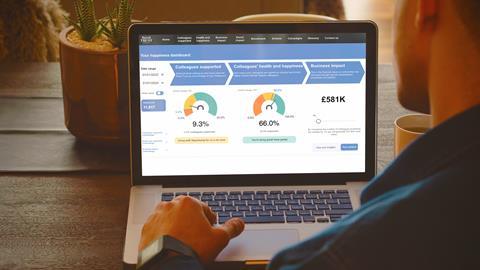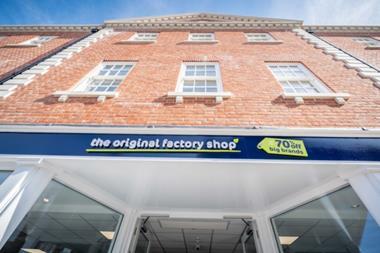It’s time to celebrate the retailers who take as much interest in their wellbeing data as their financial results, believes the Retail Trust’s Chris Brook-Carter.
Mental ill health costs UK employers up to £56bn a year.
This is according to 2022 analysis by Deloitte, which looked at the cost of staff calling in sick, working while unwell or quitting their jobs due to mental health issues. And every sign shows this number could now be even higher.
According to the Office for National Statistics, the number of people not working due to long-term sickness peaked at over 2.8 million at the end of last year, a yearly rise of more than 200,000 and an increase of 700,000 compared with figures before the pandemic. This makes Britain the only G7 economy yet to return to pre-pandemic employment levels.
Mental ill health is cited as one of the biggest contributors to this epidemic with Department for Work and Pensions data showing that more than two-thirds of incapacity benefit claims in the last two years have been for mental health problems.
Meanwhile, British Retail Consortium figures suggest the annual turnover rate for UK retail staff is 50%.
Declining mental health
There are many possible causes for these worrying trends, including delayed or underfunded NHS treatments, the high cost of living and poor workplace wellbeing practices.
Within the retail industry, the Retail Trust’s research found a fifth of workers struggle to meet their monthly outgoings due to rising prices and nearly half feel unsafe at work amidst a wave of assaults and retail crime. Eighty per cent told us their mental health is declining overall.
“Wellbeing budgets are coming under strain because employers are finding it hard to prove the direct impact to their bottom line”
But we are also concerned that four years on from the start of the pandemic, wellbeing budgets are coming under strain because employers are finding it hard to prove the direct impact to their bottom line.
That’s why it’s important we celebrate the businesses who are willing to place the same level of interest in their wellbeing data as their financial results, because they understand that the two are intrinsically linked.
FatFace and Next are just two of a handful of leading retail businesses that are putting this into practice. Together with our technology partners BJSS and WorkL they have helped the Retail Trust develop a new generative AI-powered platform that uses data from interactions with our services to provide an overall picture of staff’s health and happiness and how people are engaging with our wellbeing support.
They can then use AI to pinpoint potential problem areas and generate specific recommendations on how to improve engagement and wellbeing. For example, which employees may need more support and which services or content employers should be signposting them towards.
Protecting wellbeing
Crucially, our new ‘happiness dashboard’ uses Deloitte’s analysis to calculate ROI, showing how much initiatives to improve colleagues’ mental health will save the business as a result of reduced absenteeism and presenteeism, and improved staff retention.
It also shows savings to the economy using the Wellby standard, a measure backed by the government’s Social Impact Task Force, which has found that improving someone’s life satisfaction by one point on a scale of one to 10 could be worth £13,000 to the UK economy.
This includes the value of reducing the number of sick pay claims or reliance on NHS services.
“The Gen-AI ‘happiness dashboard’ is already beginning to give the industry the collective power needed to make retail a happier and healthier place to work”
This is empowering businesses to develop new and targeted initiatives that protect their people’s wellbeing because they can prove the benefits to both the business and the wider economy.
They can also use evidence-based, actionable insights to empower their colleagues to take charge of their health and wellbeing before they reach a point of crisis and feel they have no other option than to leave their jobs.
With a number of the UK’s biggest retail employers now adopting the platform, it’s already beginning to give the industry the collective power needed to make retail a happier and healthier place to work.
And we believe this data-powered, insight-driven approach could also become key to improving workplace wellbeing across every industry and tackling the UK’s increasingly high long-term sickness rate.
Chris Brook-Carter is chief executive of the Retail Trust






























